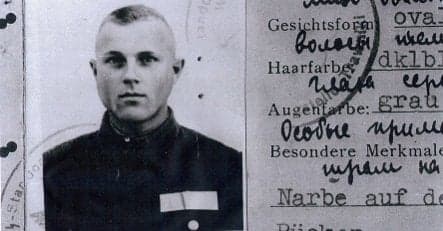German prosecutors looking to charge 'Ivan the Terrible'

A German body investigating Nazi war crimes said Monday it had enough evidence for prosecutors to bring charges against an alleged former death camp guard now living in the United States.
According to a preliminary report, Ukrainian-born Ivan Demjanjuk - nicknamed "Ivan the Terrible" - was a guard at the Sobibor extermination camp in Poland between March and September 1943, said the Central Investigation Centre for Nazi Crimes.
The identity of Demjanjuk, who changed his first name to John after emigrating to the United States in the 1950s, has been "100 percent" established, the body's head Kurt Schrimm told AFP.
He had been extradited to Israel in 1986 where he was sentenced to death two years later for his participation in the slaying of thousands of Jews in a camp in Treblinka.
But the conviction was overturned for lack of evidence by Israel's Supreme Court in 1993 and Demjanjuk then returned to the United States where he was stripped of US citizenship for having lied about his wartime activities.
Schrimm said the most recent investigation into Demjanjuk's time in Sobibor was unrelated to this previous Israeli court judgement. "Unlike in other concentration camps, such as Auschwitz, which were also labour camps, Sobibor was set up solely for the purpose of exterminating people," Schrimm said. "Guards there may therefore not use the excuse that they did not know what was happening."
The report has now been passed to prosecutors in the southern German city of Munich, where Demjanjuk had his last known address in Germany, Schrimm said.
Comments
See Also
According to a preliminary report, Ukrainian-born Ivan Demjanjuk - nicknamed "Ivan the Terrible" - was a guard at the Sobibor extermination camp in Poland between March and September 1943, said the Central Investigation Centre for Nazi Crimes.
The identity of Demjanjuk, who changed his first name to John after emigrating to the United States in the 1950s, has been "100 percent" established, the body's head Kurt Schrimm told AFP.
He had been extradited to Israel in 1986 where he was sentenced to death two years later for his participation in the slaying of thousands of Jews in a camp in Treblinka.
But the conviction was overturned for lack of evidence by Israel's Supreme Court in 1993 and Demjanjuk then returned to the United States where he was stripped of US citizenship for having lied about his wartime activities.
Schrimm said the most recent investigation into Demjanjuk's time in Sobibor was unrelated to this previous Israeli court judgement. "Unlike in other concentration camps, such as Auschwitz, which were also labour camps, Sobibor was set up solely for the purpose of exterminating people," Schrimm said. "Guards there may therefore not use the excuse that they did not know what was happening."
The report has now been passed to prosecutors in the southern German city of Munich, where Demjanjuk had his last known address in Germany, Schrimm said.
Join the conversation in our comments section below. Share your own views and experience and if you have a question or suggestion for our journalists then email us at [email protected].
Please keep comments civil, constructive and on topic – and make sure to read our terms of use before getting involved.
Please log in here to leave a comment.